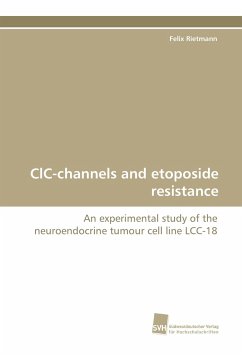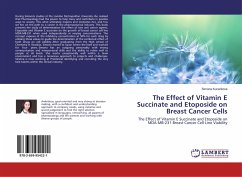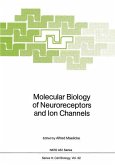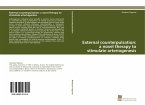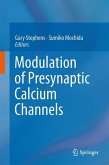Drug resistance constitutes a major challenge in the treatment of metastatic neuroendocrine cancer. Chemotherapeutic regimes for these tumours employ weak-base drugs such as etoposide. Especially for this medication, a mechanism of resistance was suggested that linked increased acidification of intracellular compartments to the evolution of drug resistance. So far, most research groups have focused on the role of the driving force behind compartmental acidification, the vacuolar H+-ATPase, in drug resistance. However, chloride channels of the ClC-family also play a pivotal role in the pH homeostasis of cellular organelles, and recently the first evidence for a potential role of ClC-3 in drug resistance was given. Following this finding, this work aims to further elucidate the role of ClC-channels and compartmental acidification in the evolution of etoposide resistance. In this context it focuses on the question of whether an up-regulation of intracellular ClC-channels can be observed as a cellular response to chemotherapeutic drugs and whether it will entail increased compartmental acidity and thus contribute to the evolution of drug resistance in vitro.
Bitte wählen Sie Ihr Anliegen aus.
Rechnungen
Retourenschein anfordern
Bestellstatus
Storno

